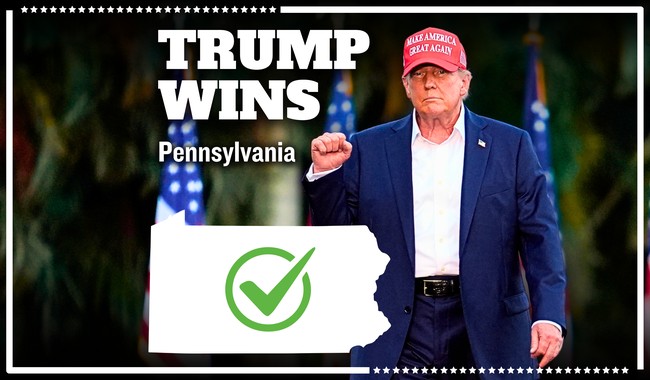Oregonlive
Business owner Keith Wilson on track to become Portland’s next mayor
J.Davis24 min ago
Keith Wilson, a trucking company CEO and political outsider, appears best positioned to become Portland's next mayor under the city's first-ever election using ranked-choice voting, according to preliminary results Tuesday night . But Multnomah County election officials estimate as many as 53% of countywide ballots may be left to be tallied. So the race's final outcome is far from certain and top rivals Carmen Rubio, Rene Gonzalez and Mingus Mapps — all incumbent Portland city commissioners — can't be entirely counted out. Partial returns as of 8 p.m. showed Wilson, who made an audacious pledge to largely end unsheltered homelessness within a year the crux of his campaign, leading Rubio 63% to 37% after multiple preliminary rounds of vote counting and candidate elimination. Wilson's pitch to tackle homelessness, crime and livability — top concerns with Portland voters — came with a full-throated insistence they can be remedied with care and compassion. Gonzalez trailed behind the pair, capturing a high of 26% in early vote-counting rounds before failing to advance further. Mapps had captured a high of 16% before being eliminated. Multnomah County elections officials said they plan to release an updated tally of ballots cast no later than 6 p.m. Wednesday. Live Results Page | Election Live Updates Portland's move to ranked-choice voting was one of several significant government and election reforms voters approved two years ago amid deepening dissatisfaction with how Oregon's most populous city runs and those elected to lead it. Under the new system, voters were allowed to rank up to six candidates for mayor in order of preference from a field of 19 contenders. A winner will ultimately emerge as candidates with the fewest number of highly ranking votes are eliminated and voters who cast ballots for those candidates have their votes transferred to their next viable choice. For much of this year, Portland's mayoral race was largely seen as a two-person contest between Gonzalez and Rubio, both of whom held early fundraising leads and racked up key endorsements from politically powerful constituencies. Backed by public safety unions and a clutch of downtown developers and property owners, Gonzalez cast himself as an unabashed law-and-order candidate who helped push Portland to the political middle and was best positioned to restore the city's livability. Rubio, who won the support of public sector unions, Democratic lawmakers and influential liberal organizations, touted her record of big policy wins at City Hall as well as her earned reputation as a coalition and consensus builder. Despite being the most progressive member of Portland's current City Council, she became a consistent champion of business community priorities. Rubio and her backers argued that her low-key, collaborative leadership style is what's needed to dial down the divisiveness that's permeated Portland politics and deliver results. They also said it would help establish the right tone and culture as City Hall begins to operate under historic changes to its form of government. By contrast, Wilson built a steady base of support without a roster of influential players in his corner, with a dogged focus on a strategy to fix Portland's most intractable problem and a hyper-energized effort to connect with voters. The owner of TITAN Freight Systems , an eco-friendly trucking company, Wilson often touted his private sector experience while also highlighting his fossil-fuel-free fleet. And while Wilson's proposal to end unsheltered homelessness by rapidly standing up emergency nighttime-only shelters faced skepticism in the final weeks of the race, his candidacy surged as his rivals' personal and political baggage became more publicly pronounced. Gonzalez's strident positions on crime and homelessness and rhetorical bomb-throwing made him a polarizing public figure and sparked a well-funded push to convince voters to leave him off their rankings for mayor entirely. In addition to his strong pro-policing stance being a mismatch for some Portland voters, Gonzalez also suffered setbacks by spending $6,400 in taxpayer money to clean up his Wikipedia page and accusing a woman who jostled his arm on a MAX ride of assaulting him . The city auditor's office ruled last month that Gonzalez violated campaign finance laws in the Wikipedia matter and fined him $2,400. Revelations of Rubio's cavalier driving history — which includes 150 parking and traffic citations and six driver's license suspensions — dented her standing with voters. She also struggled throughout her campaign to articulate a clear vision for most of the issues that are top of mind for voters, including public safety, homelessness and livability. Both carried the added burden of holding elected office at a time when most Portland residents deeply disapprove of City Hall leadership. Meanwhile, Mapps, who pinned his mayoral hopes on the idea that voters want a moderate who would cut through red tape and ensure Portland provides basic essential services, faltered early his campaign and never fully recovered. Portland's dramatic City Hall makeover means that the next mayor won't set policy or have veto power. Instead, an expanded 12-member City Council and its selected president will set legislative direction for the city. The mayor will choose and oversee a professional city administrator, subject to council approval.
Read the full article:https://www.oregonlive.com/politics/2024/11/business-owner-keith-wilson-on-track-to-become-portlands-next-mayor.html
0 Comments
0










